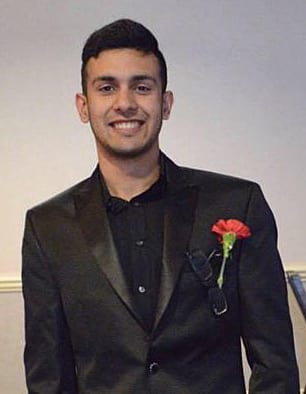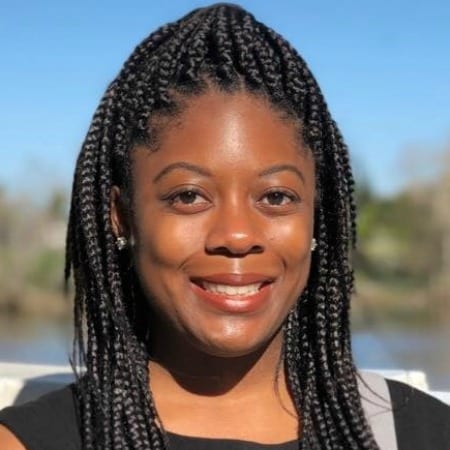By Andrew Cohen

A growing number of Berkeley Law students are passionate about equity and inclusion—and driven to achieve meaningful results. A new student-driven project, the school’s Academic Empowerment Program, is doing just that.
Led by Noor-ul-ain Hasan ’20 and launched in August, the AEP provides peer-to-peer academic skills support and community-building sessions that help students of color and other underrepresented groups transition to law-school life. A new report shows its impact has been significant.
“I gained valuable insights on good study habits, networking skills, and finding my place in the law,” says Ayyan Zubair ’21, whose family emigrated from Pakistan. “It made me feel part of a larger community of students of color, and helped foster friendships that I’m sure will last a lifetime. The skills I learned … transcend the classroom and have played an integral role in my growth as a law student. I’m immensely thankful to Noor and the other organizers for creating this space for us.”
Hasan worked with Tar Rakhra ’20 and Coalition for Diversity Co-directors Michael David Harris ’20 and Fernando Cervantes ’20 set up tutoring sessions that supplement Berkeley Law’s Academic Skills Program. The sessions bolster skills such as case comprehension, briefing, class participation, synthesizing and outlining notes, exam writing, and time management.
The AEP mentors are Harris, Rakhra, fellow 2Ls Ryan Sun, Victoria Petty, Andrew Campa, Ludia Kwon, Florence Liu, Wesley Tiu, Bonifacio Sison, Larissa Davis, and Sylvia Ashley, and 3Ls Mengfei Sun, Candice Youngblood, and Monica Ramsy. They met individually with 1Ls to give exam-writing feedback, volunteered at the skills labs, and provided one-on-one mentorship.
In addition to Hasan, Harris, Cervantes, and Campa, CFD board members who helped propel the program include 2Ls Leyla Karimzadeh, Lana El-Farra, Henna Kaushal, Mastoureh Jafarzadeh Sarhangabadi, Janani Ramachandran, and Luna Martinez.
A survey of AEP participants showed that the program provided a sense of camaraderie, boosted academic confidence, increased a sense of inclusion, and provided beneficial exam preparation.
Full-scale support
In 2016, a study by The Atlantic revealed that only 5 percent of students at elite law schools come from families in the bottom 50 percent of the socioeconomic spectrum. The study also noted that wealthy applicants have an LSAT advantage because they can afford prep courses, private tutors, and time off from work to study for the test.
Hasan had three main goals in mind for the AEP to help level the playing field: Inspire collective academic confidence, dismantle impostor syndrome, and sustain a robust academic mentorship program across communities of color.
“The response has been overwhelmingly positive from students,” she says. “The two key areas for improvement are more meaningful opportunities to interact with faculty and more robust mentorship opportunities with 2Ls and 3Ls of color. With additional funding, we can address both.”
To combat impostor syndrome, the AEP hosts events that contextualize the 1L curriculum, encourage transparent dialogue among participants about navigating law school pedagogy, and promote classroom culture change.

The mentorship prong connects first-year students with upper-class mentors, and gives them access to a summer employment and scholarship directory. Hasan helped forge a communication loop among AEP participants, 1L faculty, Student Services, and Academic Skills Program.
Tempestt Edward ’21, a first-generation professional and daughter of Panamanian immigrants, enrolled at Berkeley Law five years after graduating from college. She worried about how she would fare, but her fears soon disappeared during the AEP.
“It provided me with invaluable advice and the skills to tackle my first semester,” she says. “I was able to meet and became close with other students of color who had similar backgrounds as my own. The AEP helped feel like I wasn’t alone in the struggle to fit in at Berkeley Law and provided me a community of people that wanted to see all of us succeed academically and professionally.”
Hasan and the other AEP program leaders garnered engagement from faculty and funding from Kirkland & Ellis and Dentons. That helped them sponsor a community dinner with 1L faculty and faculty of color, and arrange a law-firm networking event through PracticePro.
Lowering the hurdles
“For any underrepresented group in any setting, mere access to an opportunity isn’t enough,” says Savala Trepczynski ’11, executive director of Berkeley Law’s Thelton E. Henderson Center for Social Justice, who spoke at the AEP launch event. “There has to be support once you’ve walked through the door, too.”
She adds, “We need services that acknowledge and mitigate the unique challenges students face when they’re in law school as members of an underrepresented group or coming from a community that’s dealt with a lot of chronic divestment. The students provided those services to each other with this program, and I think it’s phenomenal.”
Academic Skills Program Director Kristen Holmquist and Associate Director Diana DiGennaro ’06 also provided valuable faculty support, as did Emily Bruce, Assistant Director for Student Services – Equity and Inclusion.
Last year, the AEP student leaders conducted focus groups with a self-selected group of students of color about their academic experiences. They also helped create a legal lingo dictionary to ease the transition for incoming 1Ls.
The group held six unique academic skills and community labs during fall semester, focusing on different topics consistent with the 1L curriculum. Each session opened with a brief check-in where students shared identity-based issues with racism and other challenges during their first-year experience.
“We’re very proud of the initiative and think it will provide continued benefits for Berkeley Law students of color,” Harris says.
Edward agrees, noting the importance of providing “educational resources to students who have no connections to the legal field. The AEP really shows how the school cares and is making an effort to ensure that students who did not have exposure to the legal field can achieve academically in law school.”